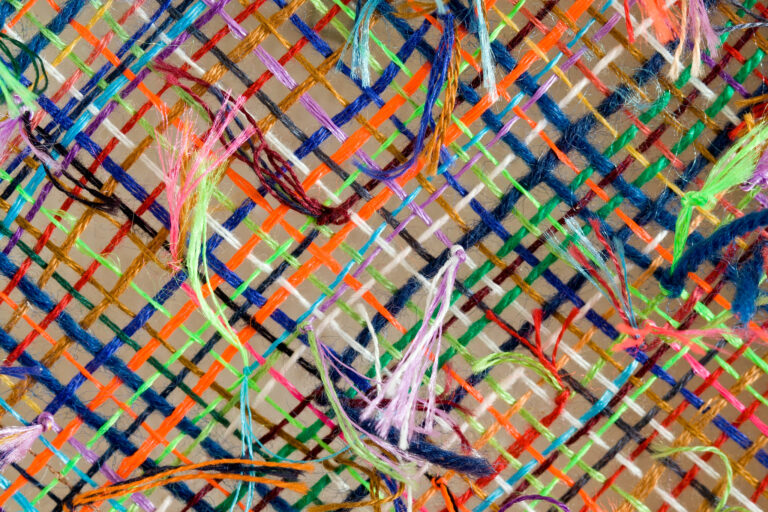Evren Savcı’s Queer in Translation presents an alternative, both in methodology and analysis, to the Orientalist analytical frameworks typical of Western scholars studying queer politics in Middle Eastern regions. Specifically, Savcı analyzes the rise of Turkey’s Adalet ve Kalınma Partisi (AKP; in English, the Justice and Development Party) to show how the AKP’s increased securitization and oppression of marginalized communities—including, but not limited to, Turkey’s LGBTQ community—is the result of the marriage of Islam and neoliberalism. Savci produces compelling case studies that reveal how Turkey’s weaponization of religion, morality, and capitalism serve to secure the nation against dissenting citizens. From the discourse surrounding the complicated murder of a gay Kurdish man, to unlikely solidarities between religious hijabi women and LGBTQ activists, and the public commons that became Gezi Park, Savci’s critical translation methods reveal how the language to construct and resist securitization in Turkey are far more nuanced than simple attribution to solely Islamist extremism or Western neoliberal influence.
Keyword: politics
On Witnessing a Riot
In the midst of the COVID-19 pandemic, the murder of George Floyd by Minneapolis police has sparked protests and riots around the world. The policing of the pandemic reveals the racial biases inherent to law enforcement and state-led discipline, laying bare ongoing infrastructural inequalities that render racialized subjects more vulnerable to premature death at the hands of police and public health systems alike. With the video embedded in the article, we guide readers through thirty-nine seconds of rioting in Los Angeles on May 31, 2020, shot on a mobile phone and circulated virally on Twitter. The affected body of the witness indexes both the intensity of the event and the embodied experience of the witness, establishing a relation between the two. The experiential aesthetics of the video exceeds the content and this affectivity circulates with its mediation and movement through networked platforms. Such forms of affective witnessing allow for an attunement to political struggle that occurs through what Hortense Spillers would call the analytic of the flesh. Thinking at the intersection of Black studies, affect theory, and media studies, we argue that the flesh is an affective register crucial to the building of global anti-racist solidarities towards abolition.
Review of Gestures of Concern by Chris Ingraham (Duke University Press)
Chris Ingraham’s Gestures of Concern considers how affective communities can be built by and through concerned gestures. His analysis of the political power of a range of these gestures—from the small tokens of get-well cards to the political protests against shuttered public resources such as libraries—emphasizes their affect as much as their action. Ingraham pays attention to the background of concerned gestures that are political, aesthetic, and community-based, and his analysis of their efficacy and their impact draws readers to consider different kinds of critical resistance in the face of growing social disparities.
Review of Art as Revolt: Thinking Politics Through Immanent Aesthetics, edited by David Fancy and Hans Skott-Myhre (McGill-Queen’s University Press)
The entanglements of “the aesthetic” and the political-economic have long been addressed in the areas of philosophy, cultural studies, and media theory. In this edited volume, David Fancy and Hans Skott-Myhre have assembled a collection of essays aimed at examining a range of aesthetic approaches to political projects untethered to “capitalist assumptions,” while looking toward the possibilities of “post-capitalist futures.” Through their respective contributions, the authors offer their readers ways to envision the potential for running lines of flight away from capital’s apparatuses of capture by engaging in creative practice.
Review of Media Hoaxing: The Yes Men and Utopian Politics by Ian Reilly (Lexington Books)
The review evaluates Ian Reilly’s analysis of Yes Men hoaxes as a means of calling attention to corporate greed and abuses of power as well as a new mode of political engagement that entails from utopian dispositions the reformist aspirations to nudge society towards a better version of itself. It emphasizes the innovative approach for of The Yes Men to “sharpening a political critique” and coupling it with doing politics differently. It highlights Reilly’s findings of the dependency of hoaxes’ success on contextual factors and encourages future studies to capitalize on Reilly’s work to develop an account of the “ecosystem” in which media hoaxes circulate.
Review of Make America Meme Again: The Rhetoric of the Alt-Right by Heather Suzanne Woods & Leslie A. Hahner (Peter Lang)
In Make America Meme Again, Heather Suzanne Woods and Leslie Hahner highlight the central role that memes play in the contemporary political landscape. Specifically, the authors show the ways in which members of the Alt-right have deftly used memes to forward their political agenda, to recruit new members, and to move the so-called “Overton window” rightward to expand the acceptable field of political discourse. In their schema, memes are not simply distractions from important political issues; rather, they function rhetorically and work to constitute the political field. The authors trace the origins of the Alt-right to the murky depths of the internet and show how discourses that emerged from these shadowy depths were able to appeal to a wider audience and cohere around mainstream political discourse. The authors carefully outline the ways that memes circulate, the rhetorical strategies that the Alt-right uses to deploy them, and the ways they work to disavow any charges of racism or extremism that critics might level against them. For Woods and Hahner, memes are the dominant mechanism through which the Alt-right is able to secure and enact its discursive power. Aware of the bleakness of this particular historical moment, Make America Meme Again provides a cogent argument for the ways the Alt-right has been able harness memetic power while also offering a blueprint through which future scholars and activists might reconfigure the present conjuncture so that the Alt-right does not have a stranglehold over the discursive power of memes in the future.
Disruptions—An interview with Jacques Rancière
This interview concerns the premise of ‘aesthetics’, as a certain regime of identification, which intervenes within the domain of ‘politics’ and ‘history of art’, as configured in the ideations of Jacques Rancière. From this general premise the discussion provokes us to particularly re-configure the concept of ‘modernism’ in art that is not solely defined through simplistic comparisons with ‘post-modernism’. Instead, a re-configuration of ‘modernism’ lets us reconsider the ‘Avant Garde’ project from the methodology of an ‘aesthetic community’ formulated during the French revolution existing still in the texts of the young Marx of the 1840s. The logic of representations in art moves beyond the objective structures of ‘Dialectical Reason’, and instead gets aligned to the aesthetic logic of being spatio-temporally ‘surplus’. Furthermore, it is the aesthetic logic that introduces the heterogeneity of political symbolizations that underlines a multiplicity of process as against a distinct strategy linking theory and practice thus even challenging a global rationality of defining ‘what is art?’ (Art History) and ‘what is politics?’ (Politics). It is based upon these contingent reversals of the signification of the world, of trying to identify the singular points of disruptions connecting to or not connecting to make a whole, that the interview concludes with questions on the multiplicity of possibles.
Review of Rated Agency: Investee Politics in a Speculative Age by Michel Feher (Zone Books)
Michel Feher’s new book “Rated Agency: Investee Politics in a Speculative Age” offers both critical evaluations and political discussions of the existing socio-economic theories about the dynamics of capitalism in the past half-century and the possible alternative directions current capitalism could take. Feher argues that whether we are a company in search of funding from shareholders, an indebted public authority seeking bondholders, or an instrumentally precarious individual in need of social benefits, we would all be subject to the issue of accreditation and indebtedness, in which being an investee is more appreciated in an age in which investors have become all-powerful.
Review of Death beyond Disavowal: The Impossible Politics of Difference by Grace Kyungwon Hong (University of Minnesota Press)
As social issue fatigue threatens to isolate even the most robust justice scholars and activists, Hong asks us to hold our contemporary complexities in unresolved tension. She invites us back to the table, asking us to attend to how our lives and others’ deaths are related and to how neoliberalism works to redefine, and obfuscate, these connections. To understand how racialized, sexualized, and gendered differences are produced, Hong argues that exploring death, as well as the work of neoliberal technologies to erase marginalized memories of death, reveals the uneven distribution of precarity and violence. The book will benefit any seminar or study that seeks to parse the tangled complexity of contemporary oppressions in and through U.S. American political structures, as well as any who seek an exemplar of how to do so with academic rigor, exceptional feminist citation practices, and ethical elegance.
Review of Reality Bites: Rhetoric and the Circulation of Truth Claims in US Political Culture by Dana Cloud (Ohio State University Press)
Dana Cloud’s marvelous new book provides just the sort of deep understanding and practical guidance needed for thoughtful and effective political engagement in the Trump era. In three fascinating case studies, Cloud demonstrates the impotence of naked facts and the power of mediation. First, she compares the cases of Chelsea Manning and Edward Snowden, both of whom leaked classified information in acts of patriotic resistance. Second, in a chapter on the 2014 television series Cosmos, Cloud seeks to explain the show’s enormous rhetorical power. Third, Cloud compares the revolutionary rhetoric of Thomas Paine’s Common Sense to that of the Black Lives Matter and Occupy movements. As we live through the devastation wrought by a Trump presidency, as we seek to make sense of it all in our scholarship and our classrooms, as we resist his attempt to reengineer of reality and search for ways to reassert our own reality, the reality of the people, Reality Bites comes not a moment too soon.
Nanopolitics: A First Outline of Our Experiments in Movement
The London-based nanopolitics group formed around a desire to think politics with and through the body, organising movement, theatre, and somatic based workshops and discussions. Using the term ‘nanopolitics’ to describe a political engagement that is attentive to the body, the nanopolitics group engage in a first reflection about their project in the text that appears here. They pose a series of questions that emerged from the project and engage in a collective reflection on their work with the body and movement, making a first foray into theorising their practice and its relevance.








